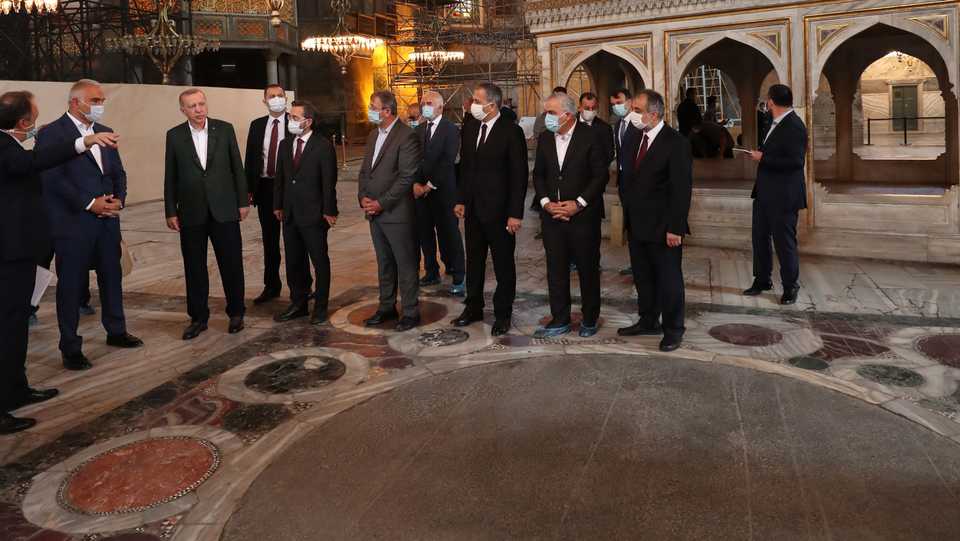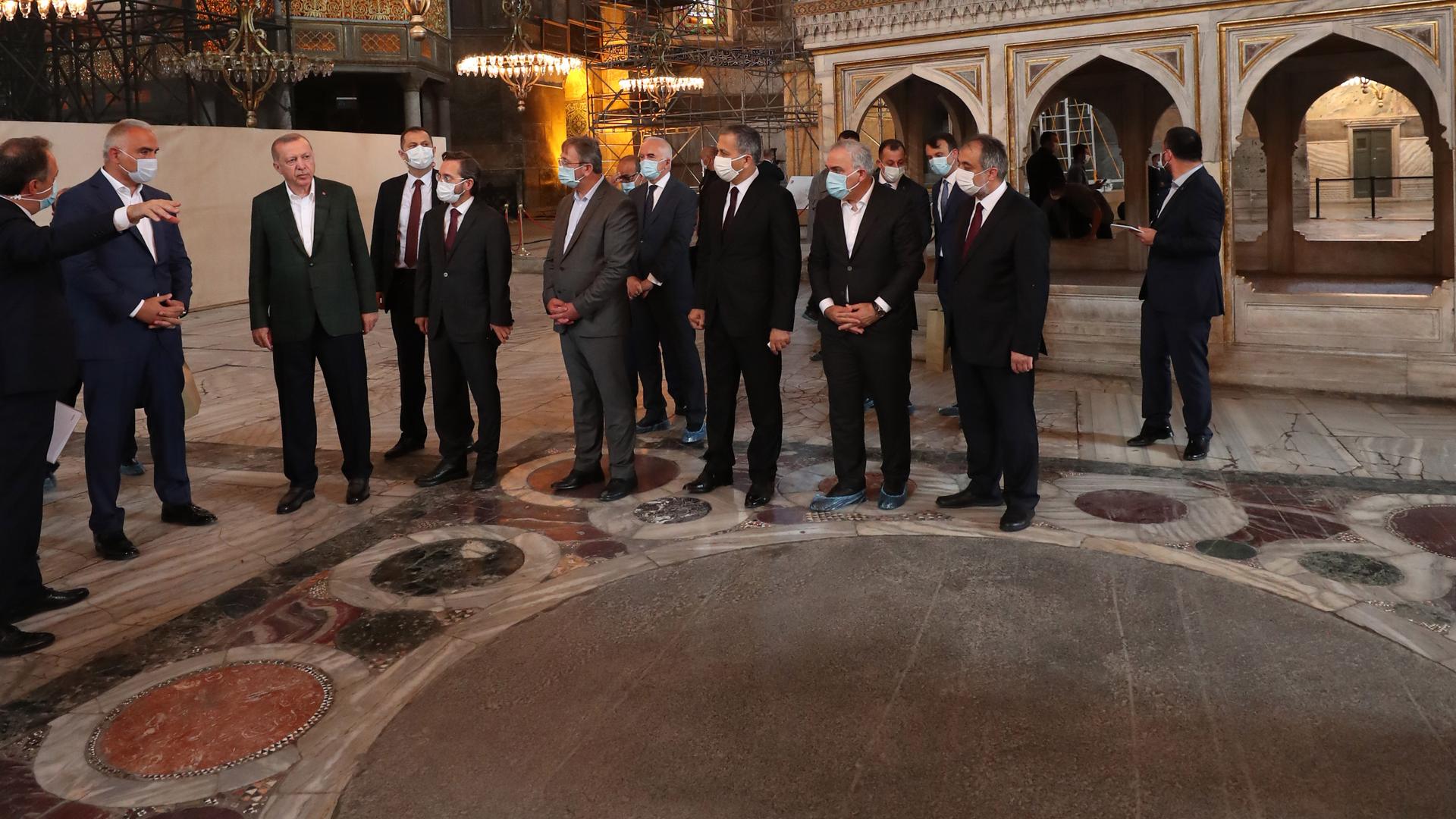
Turkey has promised the mosaics in Istanbul’s iconic Hagia Sophia –– an invaluable source of information of mosaic art in the 9th century –– will be preserved, as they have been for the past 500 years.
“The main point here is that there is no damage to these mosaics, depictions, the historical texture, and architecture of the building,” Turkey’s presidential spokesman Ibrahim Kalin told Turkish news channel NTV.
“Currently, we are working on covering them with a curtain [during prayers],” Kalin added.
The presidential spokesman’s Sunday remarks came days before the first Friday prayer is planned at Hagia Sophia, on July 24.
President Recep Tayyip Erdogan on Sunday visited the mosque to see the ongoing works.
READ MORE: Erdogan: Islamic prayers in Hagia Sophia on July 24 after 86 years
Ayasofya… pic.twitter.com/SqXRX3N5WG
— Recep Tayyip Erdoğan (@RTErdogan) July 19, 2020
Last week, a top Turkish court annulled a 1934 Cabinet decree, restoring Hagia Sophia’s status as a mosque from a museum.
Kalin did not give details on how many people are expected to attend the first prayer at Hagia Sophia but said that social distancing rules will be applied due to the novel coronavirus.
He ruled out closing the mosaics for visitors.
“These will also be open to regular visitors, whoever wants to go and see those mosaics,” he added.
The iconic monument was first built as a church in the Byzantine period. It became a mosque after Ottoman Sultan Mehmed II conquered Istanbul in 1453.
In 1934, the Turkish government turned Hagia Sophia Mosque into a museum.
Its walls are covered with Christian art including a mosaic of Virgin Mary and Baby Jesus in the main hall.
Earlier, Turkey’s top religious body said the presence of these paintings will not be any hindrance to prayers.
READ MORE: Turkish court rules 1934 conversion of Hagia Sophia into museum illegal










Discussion about this post